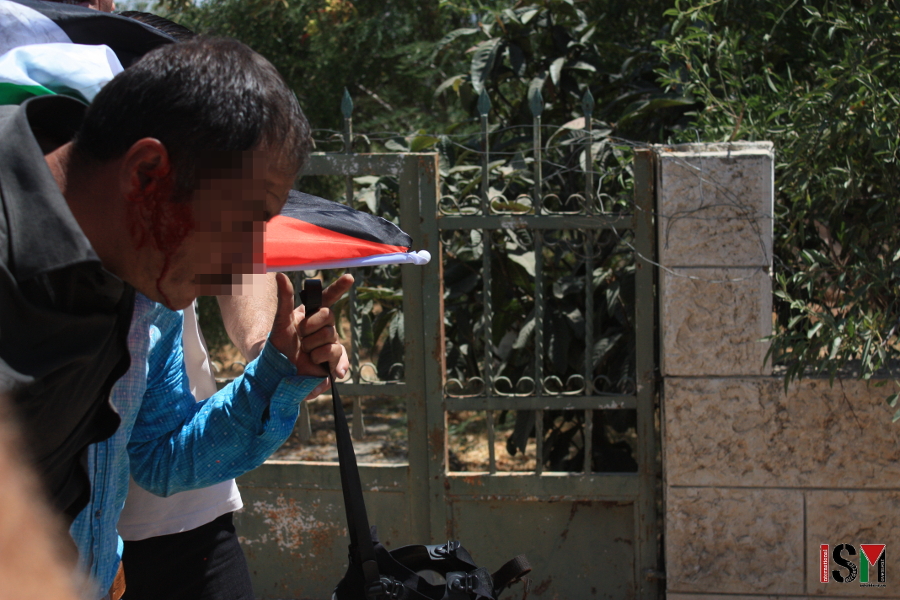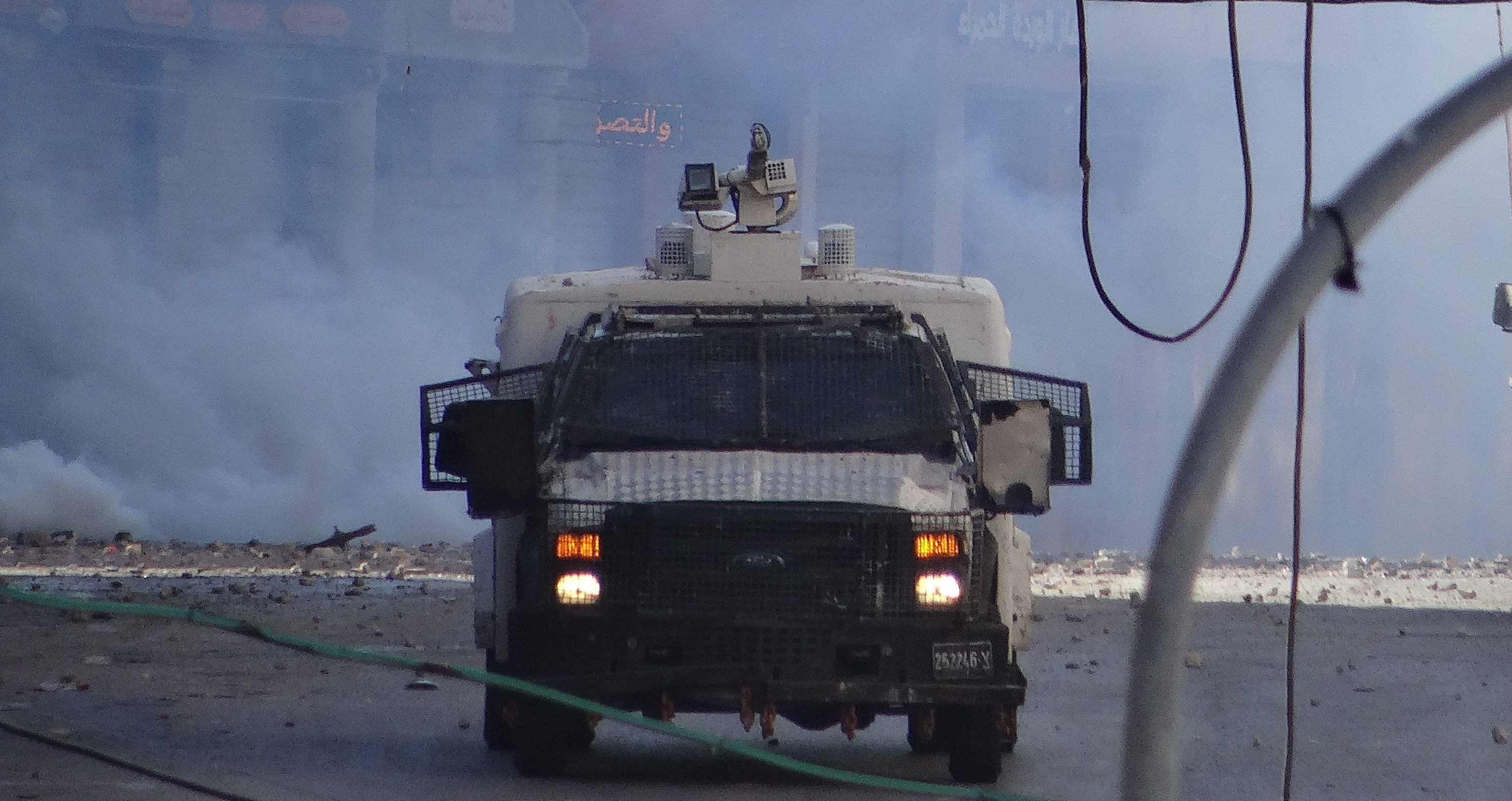Tag: Rubber-coated steel bullets
-
Israeli forces attack peaceful demonstration in Bethlehem [VIDEO]
23rd July 2017 | International Solidarity Movement, al-Khalil team | Bethlehem, occupied Palestine Israeli forces attacked a peaceful demonstration in Bethlehem this Wednesday, using tear gas and rubber-coated steel bullets on the crowd of around 200 Palestinians. The demonstrators were protesting the new access restrictions introduced by Israel at Jerusalem’s Al-Aqsa mosque. Palestinian leaders had…
-
Israeli forces shoot teargas and rubber coated steel bullets at the 6th anniversary demonstration of Kafr Qaddum
9th July 2017 | International Solidarity Movement, Al-Khalil team | Hebron, occupied Palestine On Friday 7th of July the residents of Kafr Qaddum gathered for their weekly demonstration marking its 6th anniversary, which was repressed by the Israeli forces shooting teargas, stun grenades and rubber-coated steel bullets at demonstrators. Israeli forces approached the demonstrators in…
-
Two days of clashes in al-Khalil in connection with prisoners’ hunger strike
30th April 2017 | International Solidarity Movement, Khalil Team | al-Khalil (Hebron), occupied Palestine Heavy clashes broke out during two consecutive days as Israeli forces stormed the Bab Al-Zawiah neighborhood in al-Khalil, attacking young Palestinians protesting in solidarity with the ongoing prisoners’ hunger strike. It resulted in multiple persons being injured, caused by live ammunition…

![Israeli forces attack peaceful demonstration in Bethlehem [VIDEO]](https://palsolidarity.org/wp-content/uploads/2017/07/IMG_0957.jpg)

